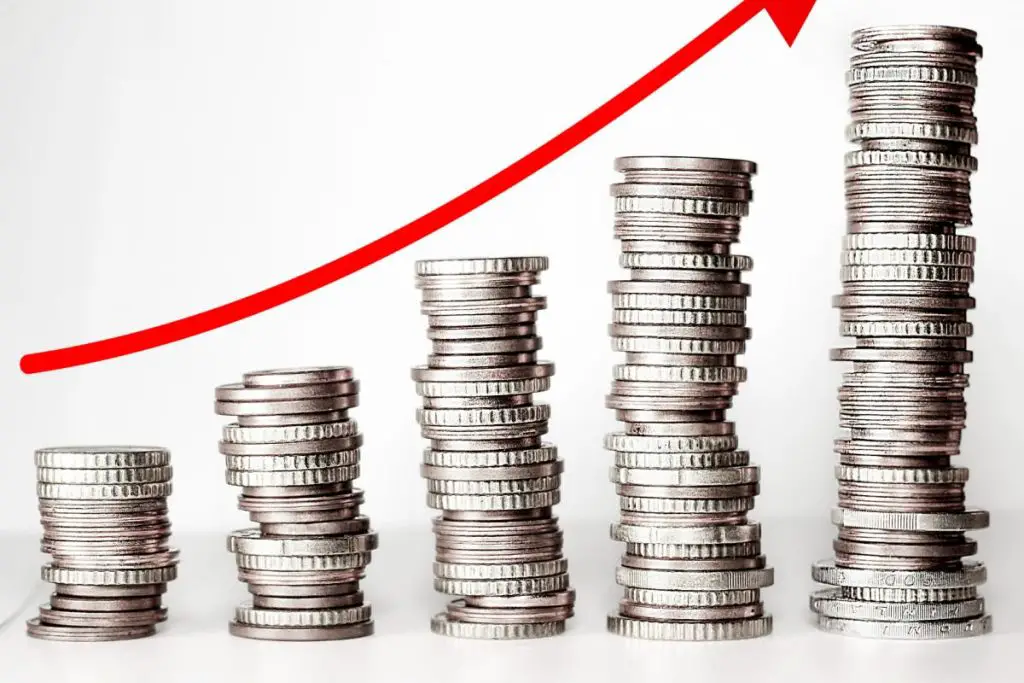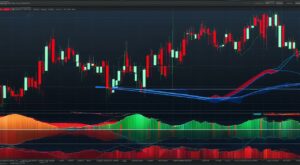How should a beginner start investing? If you found this site then you’re probably interested in learning how to invest in the stock market, which is great! It’s a valuable skill that can pay off big time if you learn how to do it right.
Unlike some industries, in the financial industry there is always more to learn and more resources available to help make your investment efforts successful.
I’ve learned a ton about investing over the years, and have compiled my knowledge into this website (and its accompanying email course) as a resource for new investors such as yourself to help demystify and simplify the process of investing so that you can begin to build wealth without having to be an expert on the topic right away.
When we’re young and on a budget, the last thing we want to do is invest our money into assets that are inherently risky assets which have the propensity to potentially lose their value over time.
However, when done correctly, investing can produce great returns and can help you reach your financial goals faster. Some investments you make will yield positive results, and some will result in losses.
But by learning how to minimize risk and putting your money into growth assets (which I would define as something that you are confident is going to appreciate in value over time), your overall returns will far exceed the risk-free rate of return (see: interest rate on CDs, bonds, treasury bills etc…)
Takeaway points
- How should a beginner start investing?
- How can I start investing with little money?
- How much money do I need to start investing?
- Can I start investing with $100?
- What are investment terms?
- What should I learn before I start investing?

How should a beginner start investing?
You might hear stories of people who get rich off of scratch tickets and lottery tickets, but they’re the exception, not the rule. If you’re planning to invest in stocks or mutual funds, you need to be prepared for a long-term approach.
A stock represents ownership in a company, so if you buy 100 shares of Apple (AAPL) at $100 per share, then you own $10,000 worth of Apple stock.
If Apple stock rises to $150 per share which it has done before then your investment would be worth $15,000. If it falls back to $95 per share, then your investment would be worth just $9,000.
That means that if you buy some stock today and sell it five years from now at a profit, there’s no guarantee that you won’t lose money on it before then. There are also no guarantees that its value will go up or even stay flat over the course of those five years.
The best way to get started is by opening an account with a robo-advisor like Betterment or Wealthfront. These services offer low-cost, automated investing services that take care of the time-consuming and complicated stuff, like asset allocation and rebalancing.
When it comes to choosing the right investment strategy, there isn’t one right move for everyone. Your financial goals, risk tolerance and time horizon should be taken into consideration when deciding which investments are best for you. If you’re looking for more personalized advice, consider talking to an investment advisor.
Investing is a game of patience, but it also requires you to be disciplined. Investing is a long-term game, and investors who can weather the ups and downs of the market are often rewarded for their perseverance. However, investing also requires that you stay committed to your goals and stick to your plan.
If you’re new to investing or have never invested before, it can be intimidating to start. But there are several ways to get started with investing even if you’re on a tight budget.
Read more article: Foreign Exchange Market Today

How can I start investing with little money?
Investing with little money can be challenging, but it’s not impossible. In fact, you might already have some of the tools you need to get started on the path toward long-term wealth building.
Here are five ways to start investing with little money:
1. Open a free investing account at a brokerage firm. The first step to getting started is opening an investment account at a brokerage firm such as Charles Schwab, Fidelity or TD Ameritrade. These firms offer low-cost trades and have no minimum deposit requirements.
2. Invest in index funds or ETFs that track broad market sectors and industries. Index funds and ETFs provide a low-cost way to invest in all kinds of assets, from stocks and bonds to real estate and commodities like gold and oil.
They’re also easy to buy since most brokerages offer them over their platforms for no commission charge (or only $1 or $2 per trade).
3. Invest in individual stocks through mutual funds or exchange-traded funds (ETFs). If you’re willing to take on more risk by investing directly in individual companies, consider buying shares in mutual funds or ETFs that focus on specific industries or countries where there’s growth potential like China or India rather than just investing in the S&P 500.
“If you have a little bit of money say $500 and you want to invest it, I would say put it into an index fund,” says Scottrade financial adviser Daryl Swetlishoff. “The best way to get started is to basically buy some sort of index fund that has exposure to the entire market.”
Index funds are mutual funds that track a benchmark like the Standard & Poor’s 500 Index (S&P 500). They’re designed to offer investors low-cost exposure to broad markets, and they typically outperform actively managed portfolios over long periods because they don’t require research expenses incurred by human managers.
The best way for anyone to get started investing is to open a savings account or brokerage account with a company like Vanguard or Fidelity and fund it with as much money as possible. Then, after you’ve put in a few thousand dollars, start buying index funds.
You can buy index funds directly from companies like Vanguard and Fidelity, but you’ll usually pay an annual fee of about 0.1% on top of any commissions charged by those firms.
If you want to keep costs down and avoid paying sales charges up front, look at one-year CDs or money market accounts at banks that offer higher interest rates than traditional savings accounts (though these rates may not be as good as what’s available from online banks).
Read more article: Foreign Exchange Market Definition

How much money do I need to start investing?
Investing is a long-term commitment, but that doesn’t mean you need to start with a huge sum of money. In fact, experts say you can get started with as little as $500. Investing is a long-term commitment, but that doesn’t mean you need to start with a huge sum of money. In fact, experts say you can get started with as little as $500.
“If you’re starting out with $500 or less, I’d suggest going for index funds,” says Jason Moser of LendingTree, an online loan marketplace. “You should have the ability to invest in at least four or five mutual funds or ETFs.”
When it comes to saving and investing, there’s no magic number. But experts say that if you’re starting out on your own or just getting back into the workforce after years of being out of it, then $1,000 is enough to get started especially since many brokers offer no-minimum accounts these days.
“If you have an emergency fund or a rainy day fund and want to start investing, I would say $1,000 is all that’s needed,” says Greg McBride, CFA and chief financial analyst at Bankrate.com. “You don’t need a lot of money to invest.”
But if you’re going to build up an investment portfolio over time, then you’ll need more money especially if you want to buy individual stocks or bonds.
Most mutual funds require a minimum initial investment between $500 and $2,000; brokerage firms often require higher amounts because they have higher fees than mutual funds do.
Your best bet: Start small with index funds or exchange-traded funds (ETFs), which hold baskets of stocks or bonds that track the performance of indexes like the S&P 500 or Dow Jones Industrial Average (DJIA). These funds cost less than actively managed mutual funds because they don’t require research staffs.
It’s also important to diversify your portfolio across different asset classes so you’re not putting all your eggs in one basket stocks, bonds and cash. Here’s how much you’ll need:
If you’re just starting out, begin by investing in a low-cost index mutual fund or exchange-traded fund that tracks the broad market.
(A broker can help you find the right one.) That way, as the markets rise and fall, you’ll be able to capture any gains without having to worry about timing the market or predicting which stocks will outperform.
Once you have that covered, consider adding other types of investments that can provide some diversity to your portfolio. These include:
Real estate investment trusts (REITs). These are companies that own or finance real estate properties such as apartment buildings and shopping centers.
The value of REITs tends to rise when interest rates are low because they pay dividends based on their net investment income, which is comprised mostly of interest payments from mortgages they’ve made.
Because REITs tend to be more stable than other types of income investments such as bonds, they can help make up for volatility in other parts of your portfolio.
Read more article: Learn Forex Trading Step by Step

Can I start investing with $100?
Yes, you can start investing with $100. However, there are some limitations that you should be aware of before you get started. First of all, if you’re looking to invest in stocks, options or mutual funds, you need to have a brokerage account. To open an account with a broker, you need at least $1,000 to invest.
You’ll also want to make sure that the broker has low trading costs and fees. You can find out about those by reading our reviews of discount brokers.
If you’re just starting out, we recommend that you use the free trading platform offered by Robinhood or TradeKing for stock trades (see our review) and Vanguard for index fund trades (see our review).
These companies allow investors to trade stocks and ETFs without paying commissions or other fees as long as they make less than $10k per year in trades. If you’re looking to do more than just trade stocks and ETFs, then you’ll need to open an account with a brokerage firm.
These firms charge commissions on each trade and require minimum balances to open an account. However, they also offer access to more complex investment products like mutual funds and options contracts.
Most discount brokerages require a minimum deposit of $500 to get started and will let you open multiple accounts for no additional cost. You can also add money from external sources like your bank account or credit card assuming it’s not a debit card issued by the same institution as your brokerage account.
Read more article: Things to know about Forex market

What are investment terms?
Investment terms are the words and phrases used to describe different types of investments. Here are some of the most common investment terms: Annuity. A contract that pays an investor a series of payments over time, such as monthly or annually.
Annuities can be fixed or variable, immediate or deferred. With a fixed annuity, the return is known in advance; with a variable annuity, it varies with financial markets.
Asset allocation. The process of deciding how much money to invest in each asset class (stocks, bonds, cash and other assets) based on your risk tolerance level and other factors. Asset allocation is generally done by an investment manager on your behalf at no cost to you.
Bond rating agencies. These companies evaluate how risky bonds issued by governments or corporations are likely to be AAA means they’re considered extremely safe while CCC means they’re far less secure and likely to default on their debt obligations if interest rates rise too high.
Capital gain/loss. The difference between what something sold for initially and what it sells for later on when it’s sold again (or “liquidated”).
For example, if you bought 100 shares of XYZ stock at $1 per share ten years ago and sold those shares ten years later at $2 per share, you’d realize a capital gain of $1 per share or $100 total.
Dividend. A portion of a company’s earnings paid out to shareholders as cash payments or reinvested in the company by buying more shares. Dividends are generally taxed as income and may be subject to state and federal tax withholding.
Interest rate. The cost of borrowing money expressed as a percentage of the amount borrowed.
Interest rates are quoted as annual percentage rates (APRs), which include all costs associated with borrowing money over a period of time. For example, an APR of 8% means that if you borrow $100,000 over five years at that rate, you’ll pay back $108,000 at the end of the term.
Read more article: How to use VPS for Forex Trading

What should I learn before I start investing?
Investing is not an easy thing to do. You need to be prepared with some basic knowledge before you start investing. Here are some topics that you should go through before you start investing:
The basics of stock market. You can learn how it works, how stocks are issued, traded and valued in the stock market. You can also learn about different types of stocks and how they function differently.
How to read financial statements? This is important because it helps you understand the financial health of a company and its future prospects.
What are the different types of market? There are two types of markets – primary markets and secondary markets. The primary market involves selling new securities, while the secondary market involves buying and selling existing securities from another investor or institution.
What is liquidity? Liquidity refers to how quickly an asset can be bought or sold without affecting its price considerably. For example, if you want to sell your house today, then it becomes very difficult because there aren’t many buyers for such assets at the moment;
however, if someone wants to buy your house tomorrow at any cost then it becomes easier because there are many buyers ready to purchase such assets immediately at any cost.
Liquidity is one of the most important factors when you’re investing in anything whether it’s stocks or real estate. If you’re looking for a good investment and don’t have time to wait for months or years until the market value increases, then stocks and real estate are not for you as these assets take time to reach their full potential value.
What makes an asset liquid?
Here are some examples of assets that are more liquid:
Cash – Cash is extremely liquid because it can be sold easily at any time without affecting its price significantly; however, cash usually doesn’t earn any interest or return and so most people prefer other types of investments that provide better returns with less risk compared to cash savings accounts.
Bonds – Bonds are debt instruments issued by corporations or governments that pay a fixed rate of interest until the maturity date, at which point the investor’s principal is repaid.
Stocks – Stocks represent partial ownership in a company and generally pay dividends based on its profits. Stock prices fluctuate constantly as investors buy and sell them according to their expectations about future earnings potential and market conditions.
Mutual Funds – Mutual funds are professionally managed portfolios made up of many individual stocks, bonds or other securities.
Mutual fund managers aim to outperform market benchmarks such as the S&P 500 or Dow Jones Industrial Average by investing in a diverse mix of assets such as stocks, bonds, commodities or currencies around the world.
Mutual funds offer investors diversity and professional management but come at an annual fee that is charged by the fund manager for their services.
Read more article: Tips on Forex Trading for Beginners

Final thought
So that’s it. We’ve talked a lot about the details of stock investing and what kinds of accounts you can use to get started, but ultimately when you’re ready to start your investment journey the best thing you can do is simply start.
There’s no guide that will tell you how much money to put in or which companies are going to rise and fall next year.
That’s up to you. But if you can learn for yourself how you feel about risk and how much effort you want to put into research, then hopefully this guide will help you move forward in the right direction for your goals and interests.
Once you’re ready to start investing, I would suggest learning to turn down the risk factor and opting for safer investments while you get things sorted out. But electing to stick to smaller and less risky stocks is a good starting point to build your portfolio as you begin investing.
So while before you did no research at all on what stock investing was or how it worked, now you have some knowledge of stocks and their various characteristics.
You can begin to tinker with buying, selling, and reinvesting in your chosen companies. The previous section on researching a company might be something to go over then as well, which will provide you with information about how stock investing works from the ground level.
Read more article: How to Make Profit on Forex Trading
Want to learn how to trade forex? Click here!
Download PTS Support & Resistance MTF Indicator
Download RoundNo Indicator Free
Other related articles
- Trade Report Indicator: Indicator for Forex Traders
- Trend Profiteer Trading System: A Trader’s Must Have
- Quantum Trend Sniper Indicator MT4: Free Download
- German Sniper Indicator: Unveiling its Power
- Mastering MACD Intraday Trend | Indicator Free Download
- Crazy Accurate 5-Days Breakout Strategy: Unlock Success

Joseph Benson, I have been trading forex for more than 15 years now and I am still trading actively, a content writer, an Architect also SEO expert, learn how to trade easily with me.











Leave a Reply